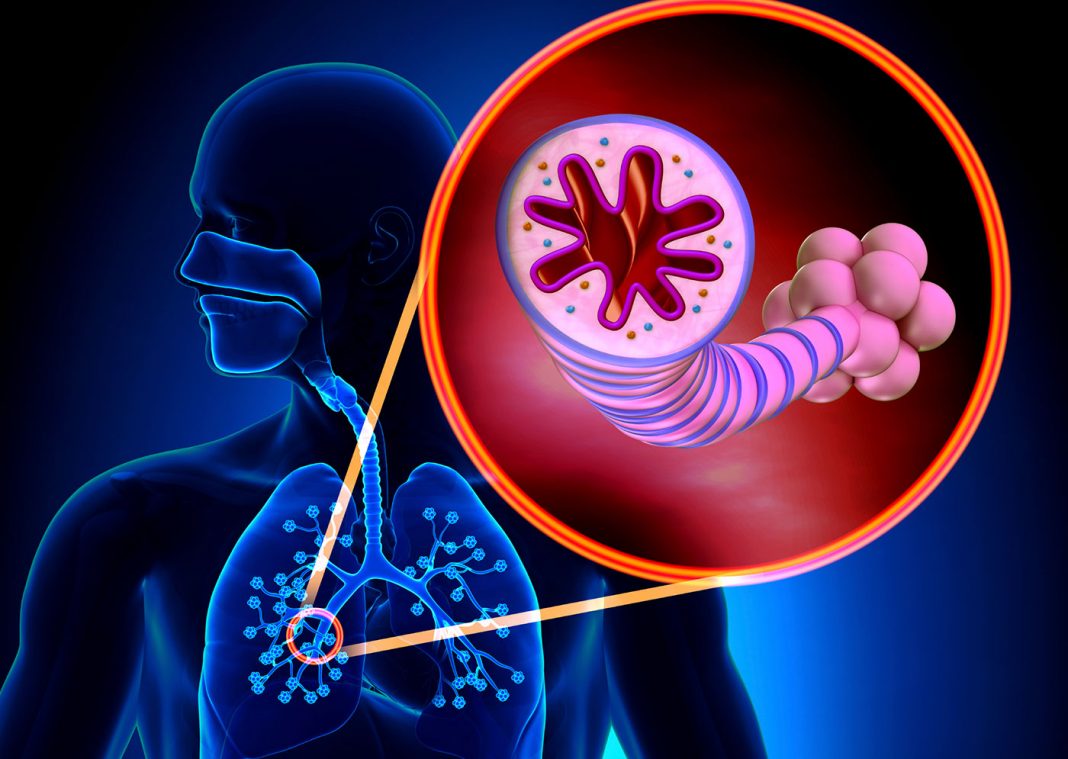Chimeric antigen receptor (CAR) T cell therapy has been shown to be hugely advantageous in the treatment of cancers. This therapy employs genetically modified T-cells to find and destroy cancers.
Now, Min Peng, PhD, and his team at Tsinghua University in Beijing, China, have used CAR T technology to successfully treat not cancer, but chronic asthma using a mouse model. They present their findings in an article published in Nature Immunology, “A single infusion of engineered long-lived and multifunctional T cells confers durable remission of asthma in mice.” The study provides a proof of concept for the safety and utility of using CAR T cell therapy for non-cancerous applications in a pre-clinical setting.
“Asthma, the most prevalent respiratory disease, affects more than 300 million people and causes more than 250,000 deaths annually,” write the authors. This widespread chronic disease is difficult to treat, often requiring daily medications, or emergency treatments like inhalers.
Recent work in asthma therapies has aimed at understanding the triggers and root causes of the disease or identifying ways to modulate how the immune system responds to triggers. Some of these alternative immune blocking systems include recent work in blocking type 2 innate lymphoid cells from becoming hyperactivated by allergens and by better understanding and preventing damage to epithelial lining of the airways, which occurs as a consequence of airway constriction from allergic response.
The present study focused on asthma with “type 2-high signature,” which includes an increase in immunoglobulin E (IgE) production (eosinophilia), increased mucus production, and bronchial hyperresponsiveness causing excessive constriction of the bronchi. The authors explain that “type 2-high asthma is characterized by interleukin (IL)-5-driven eosinophilia, along with airway inflammation and remodeling caused by IL-4 and IL-13.” They reasoned that reducing the functionality of these interleukins should reduce the asthmatic response to allergens.
Peng and colleagues engineered CAR T cells that would target the varied drivers of allergic reaction. They focused first on IL-5, then included IL-4, and IL-13. “We call these cells immortal-like and functional IL-5 CAR T cells (5TIF) cells,” the authors said. The 5TIF cells were further modified to secrete an IL-4 mutein that blocks IL-4 and IL-13 signaling, designated as 5TIF4 cells.
The 5TIF and 5TIF4 cells were then injected into mice, which were continually monitored. “In asthma models, a single infusion of 5TIF4 cells in fully immunocompetent mice, without any conditioning regimen, led to sustained repression of lung inflammation and alleviation of asthmatic symptoms,” wrote the authors.
They further found that the 5TIF and 5TIF4 cells persisted in the mice for a year after injection and did not find any cytotoxic or systemic negative immune response during that period. The team conclude that this therapy appears safe and note that “safety switches used in current CAR T cells can be implemented in 5TIF and 5TIF4 to further enhance safety.”
Of course, clinical trials would need to confirm the safety and efficacy in humans. The authors also note that therapy with 5TIF or 5TIF4 cells could be used to treat other diseases characterized by eosinophilia and type 2 cytokine involvement “including allergy, atopic dermatitis, hypereosinophilic syndromes, chronic obstructive pulmonary disease, eosinophilic chronic rhinosinusitis, eosinophilic leukemia, and others.”
“These data show that asthma, a common chronic disease, can be pushed into long-term remission with a single dose of long-lived CAR T cells.” The authors conclude that this study marks “a potential paradigm shift in the management of common chronic disease.”


